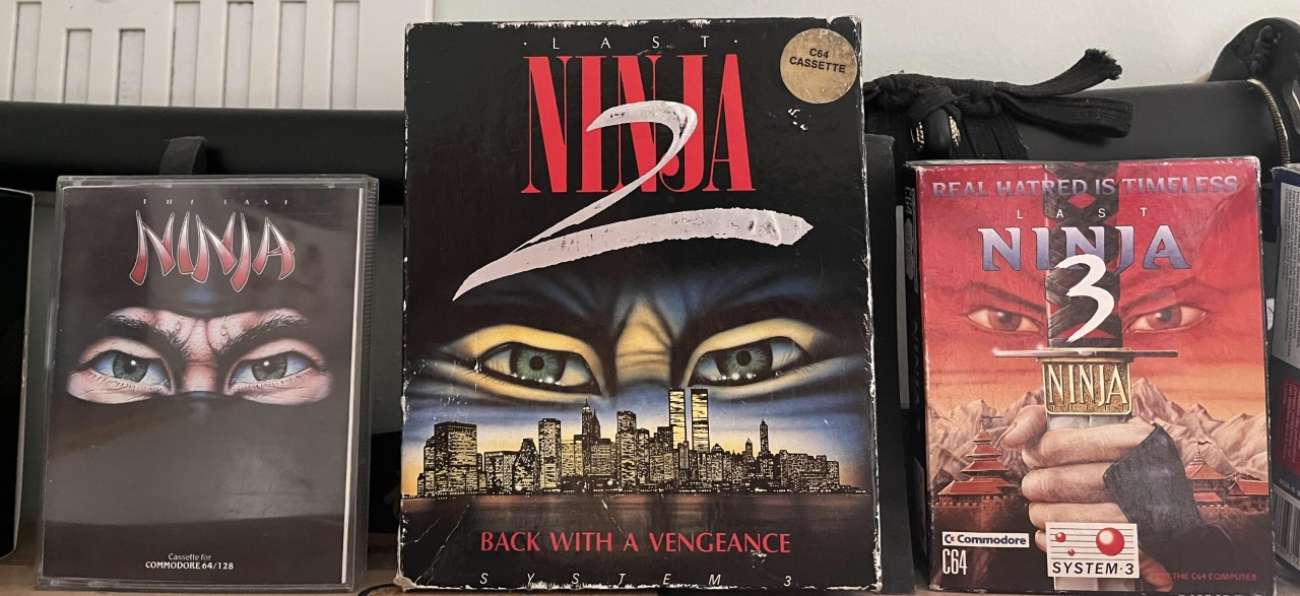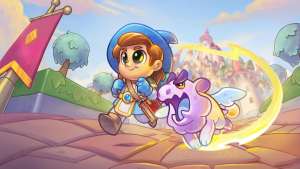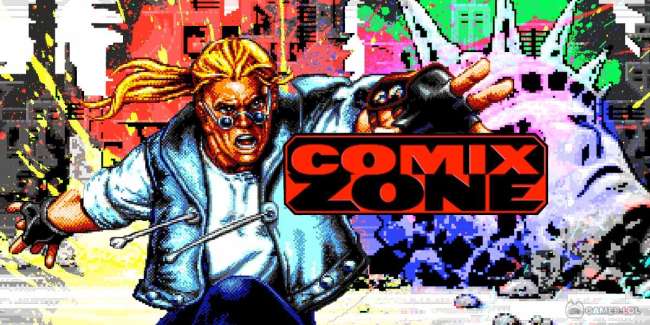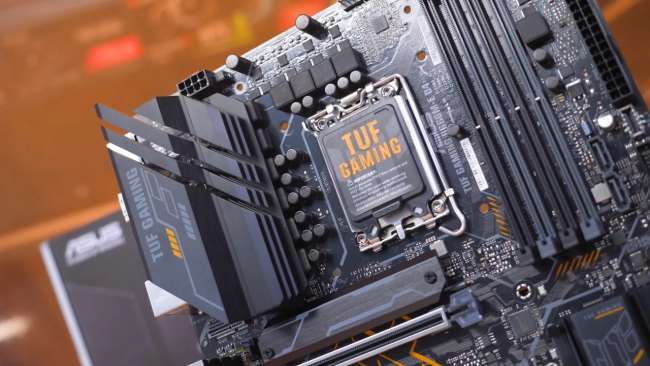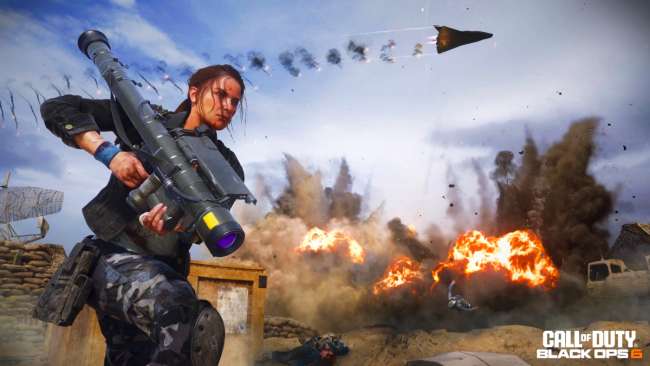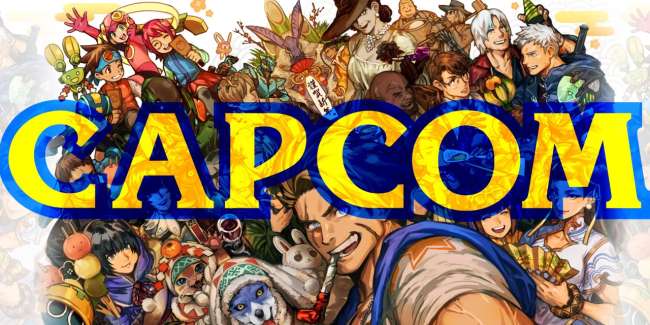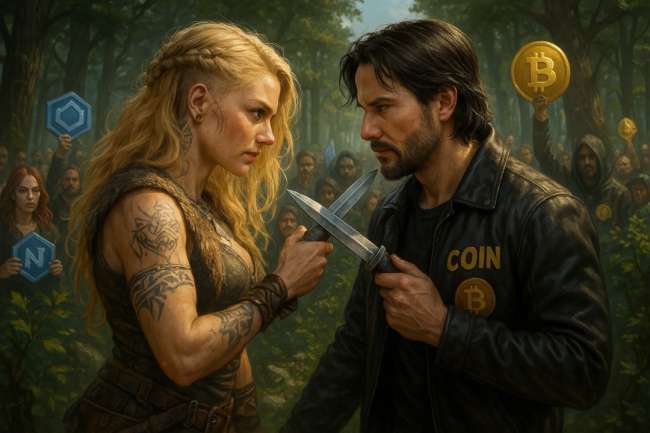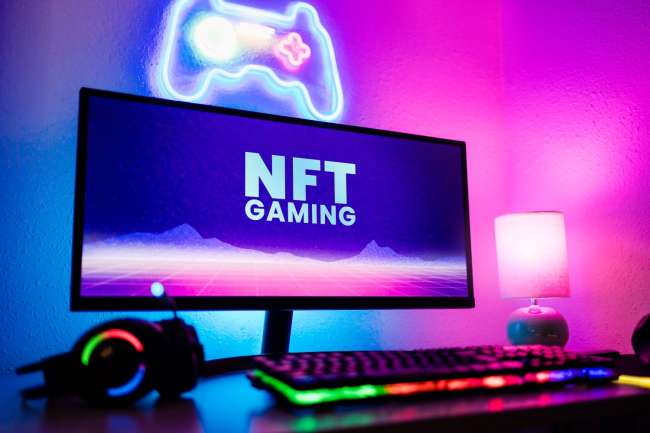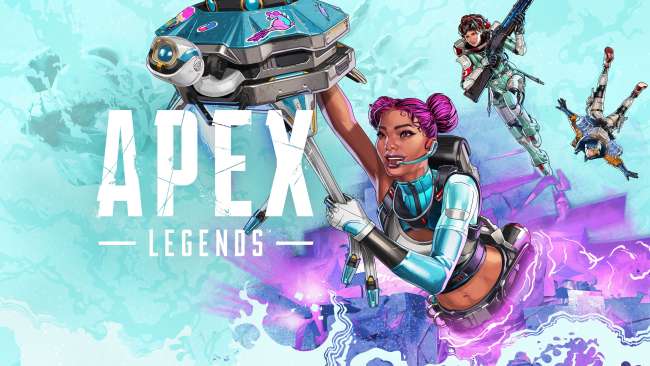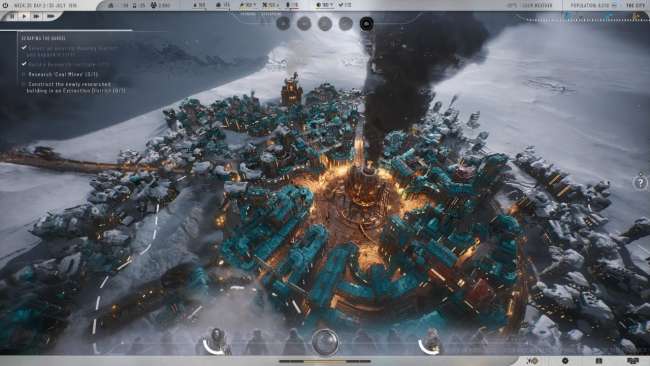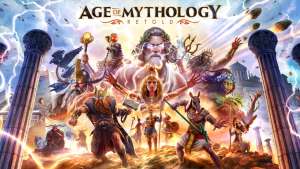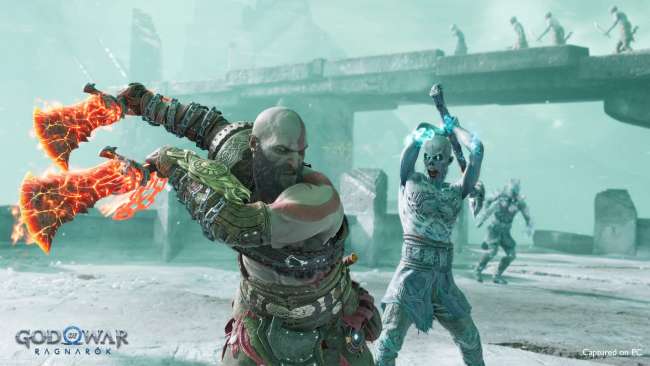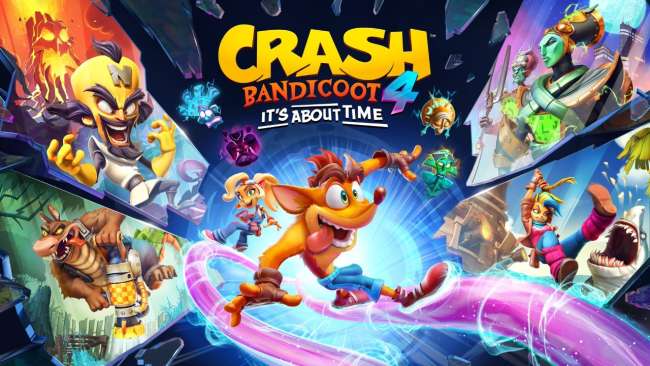In The Spotlight
Online gaming has grown into a global battleground where every millisecond counts. Whether you’re climbing the ranks in Valorant, clutching in CS2, or trading blows in a fast-paced MOBA, latency isn’t just an annoyance—it can be the difference between victory and defeat. While gamers often obsess over frame rates and GPU power, many underestimate the silent killer of competitive performance: network latency.
This guide dives deep into everything that affects latency and how you can optimize your network setup for the smoothest, most responsive gameplay possible.
A high-quality gaming headset is more than just a luxury—it’s an essential tool for competitive and immersive gaming. Whether you're playing story-driven single-player games or engaging in intense multiplayer battles, a headset with superior audio quality can make all the difference. With features like surround sound, active noise cancellation, and high-fidelity drivers, modern gaming headsets can transport players into the heart of their favorite games.
This guide highlights ten of the best gaming headsets for immersive audio, detailing their unique features, sound performance, comfort, and compatibility.
Platformer games are timeless—built on creativity, precision, and that special kind of joy you feel landing a tricky jump after countless attempts. While many genres evolve and fade, platformers continuously reinvent themselves, bringing new ideas, emotional storytelling, and unforgettable worlds to life. The recent wave of games has pushed these boundaries even further, blending nostalgia with innovation, and charming simplicity with deep, engaging gameplay.
In this detailed series, we’ll explore fifteen standout platformer titles, each carefully chosen for its unique strengths, memorable experiences, and impressive creativity. Whether you’re looking for emotional depth, visual artistry, clever mechanics, or a pure test of skill, these games have something special to offer. Join us on this journey through the best recent platformers and discover your next favorite adventure.
HOT
-

World of Warcraft: The War Within brings players to the depths of Azeroth in a way never before explored. As the first chapter of the Worldsoul Saga, it introduces a narrative that is as engaging as it is ambitious. The expansion's setting focuses on Azeroth's subterranean mysteries, plunging players into a battle against the Harbinger of the Void, a powerful force leading the nerubian armies.
The narrative ties seamlessly into existing lore, expanding on the enigma of Xal’atath, a character who has captivated players for years. Her reappearance is masterfully intertwined with Alleria Windrunner, a dynamic that blends tension and unexpected emotional undertones. Fans of WoW’s storytelling will appreciate the careful balance of lore-rich depth and compelling character arcs.
Mechanically, the expansion brings significant changes that cater to diverse playstyles. One standout feature is Delves, mini-dungeons designed for solo or small-group experiences. With adjustable difficulty levels and rewards comparable to Mythic dungeons, Delves cater to a broader audience while maintaining the challenge hardcore players seek. These areas allow players to explore without the pressure of coordinating a large group, adding accessibility without sacrificing depth.
Another highlight is the Follower Dungeons. Building on systems like the Mission Table and Island Expeditions, these dungeons allow players to team up with customizable AI companions. This feature creates an opportunity for more personal storytelling as players traverse Azeroth's depths with uniquely designed allies.
The Hero Talents system introduces a fresh layer of customization, allowing characters to grow in distinct ways. Additionally, the Warbands system simplifies account-wide progression, especially for players managing multiple characters. This feature is a welcome quality-of-life improvement for longtime fans who enjoy exploring different classes.
Visually, The War Within impresses with its atmospheric design. Areas like Khaz Algar and Sanctification demonstrate Blizzard’s ability to craft diverse environments that feel alive and immersive. The subterranean world exudes a sense of mystery, supported by an evocative soundtrack that heightens the experience.
The expansion delivers on nearly all fronts, reinvigorating World of Warcraft with innovation and depth. The War Within sets the stage for the Worldsoul Saga with an unforgettable dive into Azeroth's hidden realms.
-

Another Crab's Treasure by Aggro Crab is a delightful and quirky action-adventure that breathes new life into the "soulslike" genre. Set in a vibrant underwater world, the game’s premise is as absurd as it is captivating: you play as Kril, a hermit crab on a quest to reclaim his repossessed shell, armed with nothing but resourcefulness and sheer determination.
The first thing that strikes you is the art style. The underwater setting is beautifully rendered with a mix of vibrant coral reefs, murky trenches, and bustling aquatic communities. Each zone feels distinct and alive, filled with strange and amusing sea creatures that range from adorable to downright intimidating. The whimsical design is complemented by a soundtrack that strikes a balance between serene melodies and intense battle themes.
Gameplay is where Another Crab's Treasure shines. The combat system, inspired by the "soulslike" formula, is both challenging and accessible. Kril’s ability to improvise shields from discarded objects like tin cans, bottle caps, and shells adds a unique layer of strategy to the game. Each improvised shield comes with its own quirks and durability, forcing you to adapt constantly. The game encourages exploration, with hidden treasures and lore scattered throughout the ocean floor.
What sets this title apart from other soulslike games is its humor and charm. While the difficulty can be punishing, it never takes itself too seriously. The writing is clever, and the NPCs, from fellow crustaceans to eccentric fish, are bursting with personality.
If there’s a drawback, it’s that the novelty of the shield mechanic can wear thin in later stages, as some encounters feel repetitive. However, the game’s charm and creativity more than make up for it.
Another Crab's Treasure is a fresh take on the genre, combining humor, challenge, and heart. It’s a treasure worth diving for.
-

Like a Dragon: Infinite Wealth takes the beloved series in bold new directions while staying true to the charm and wit that fans have come to adore. As the latest entry in RGG Studio's acclaimed saga, this game expands the universe of Like a Dragon (formerly Yakuza) with an ambitious storyline, enhanced gameplay mechanics, and a breathtakingly detailed world.
The game continues the journey of Ichiban Kasuga, the lovable underdog introduced in Like a Dragon (2020). This time, the story takes a surprising turn as Ichiban finds himself stranded in Hawaii, thrust into an unfamiliar environment teeming with challenges and opportunities. The narrative expertly balances heartfelt drama with the series' signature comedic undertones. Themes of loyalty, identity, and personal growth are explored deeply, and the writing is sharp, delivering moments that are both gut-wrenching and laugh-out-loud funny.
One of the most exciting updates in Infinite Wealth is the expanded world. Hawaii is a vibrant playground, offering players a mix of urban and tropical settings to explore. The region feels alive with its bustling streets, serene beaches, and quirky NPCs, who often serve as gateways to the game’s colorful side quests. These “substories” remain a highlight, blending absurd humor with surprising emotional depth.
Combat retains the turn-based system introduced in Like a Dragon, but it feels more refined and dynamic. The addition of environmental interactions, new party synergy attacks, and expanded job classes inject fresh life into the gameplay. Whether you’re commanding Ichiban’s party in a strategic boss fight or using improvised weapons like bicycles against street thugs, every battle is a spectacle of chaos and creativity.
Mini-games, a hallmark of the series, are plentiful and diverse. From surfing competitions to running a Hawaiian beachfront business, there’s no shortage of distractions. The "Dondoko Island" mode, where players manage their own resort, is especially addictive and adds a surprising level of depth.
Visually, Infinite Wealth is a feast for the eyes. The lush environments of Hawaii are rendered with meticulous attention to detail, from the crystal-clear waters to the bustling markets. Character models are stunningly lifelike, bringing the cast’s personalities to life with nuanced expressions and animations.
Like a Dragon: Infinite Wealth is a bold evolution of the franchise. Its mix of heartfelt storytelling, engaging combat, and diverse activities ensures it stands out as one of 2024’s best RPGs. Whether you're a long-time fan or a newcomer, this is a journey worth taking.
-

Dragon's Dogma II marks a triumphant return for Capcom’s beloved action-RPG series, blending familiar mechanics with a slew of impressive updates. Set in a sprawling fantasy world brimming with life and danger, the game builds on the foundations of the original while delivering a richer and more immersive experience.
The story centers around the Arisen, a chosen hero destined to challenge colossal monsters and navigate the intricate relationships within the game’s lore-rich world. While the narrative starts with a familiar premise, it deepens as you explore themes of power, destiny, and the eternal cycle of life and death. The storytelling is nuanced, offering surprising twists and a cast of well-crafted characters that leave a lasting impression.
Combat is the shining star of Dragon's Dogma II. The diverse array of classes, or vocations, returns, including the traditional Fighter, Mage, and Strider, as well as hybrid classes like Mystic Knight and Magick Archer. The combat feels fluid and impactful, allowing players to scale towering enemies in a way reminiscent of Shadow of the Colossus. Whether wielding swords, bows, or powerful spells, each battle demands strategy and skill, making every encounter thrilling.
The pawn system—a standout feature from the original—makes a strong comeback, enabling players to recruit customizable AI companions. These pawns learn from your playstyle and provide invaluable assistance in combat and exploration. Their intelligence and adaptability are significantly improved, making them feel more like genuine allies than mere tools.
Visually, Dragon's Dogma II is stunning. Powered by the RE Engine, the environments are detailed and atmospheric, from lush forests to dark, foreboding caves. The day-night cycle adds an extra layer of immersion, with night bringing genuinely terrifying challenges.
In short, Dragon's Dogma II is a masterful sequel, offering fans and newcomers an epic journey filled with adventure, danger, and heart-pounding action.
The next two years are shaping up to be incredible for gamers, with a wide range of highly anticipated releases, from blockbuster AAA titles to standout indie gems. This comprehensive guide breaks down the biggest upcoming games month by month, complete with insights into their gameplay, features, and industry impact. Additionally, we’ll explore key trends shaping gaming in 2025 and beyond.
When it comes to apocalyptic narratives, the Terminator franchise holds a special place in pop culture history. With its grim portrayal of humanity's war against machines, the series has captivated audiences for decades. Now, fans have a chance to immerse themselves in this universe like never before with "Terminator: Survivors," a highly anticipated open-world survival game. Developed by Nacon Studio Milan and set for release in 2025, this game promises a thrilling blend of storytelling, strategy, and survival gameplay.
Fortnite has never been one to rest on its laurels—and the latest evolution in its ever-expanding universe is no exception. With the unveiling of its groundbreaking new mode, fans around the globe are abuzz with excitement, debates, and a flurry of creative speculation. This fresh take on the battle royale formula is not merely a tweak or a seasonal event; it’s a bold statement that Fortnite is ready to reinvent itself once again.
Video games have evolved from a niche pastime into a multi-billion-dollar industry that captivates people of all ages worldwide. With gaming now a fundamental part of modern culture, it raises an important question: why are we so drawn to video games? While some may dismiss them as simple entertainment, the psychology behind gaming runs much deeper.
From a psychological perspective, gaming satisfies numerous intrinsic and extrinsic human needs, from achieving goals to forming social connections. They offer a safe space for escapism, cognitive stimulation, and even personal growth. Whether it’s the thrill of competition, the immersion in a virtual world, or the sheer joy of problem-solving, video games have a unique way of engaging the brain in ways that other forms of entertainment cannot.
By understanding the psychology behind why we play video games, we can gain insights into their benefits, potential drawbacks, and their impact on our daily lives. This article delves into the fundamental motivations behind gaming, the cognitive and emotional effects of playing, and how game design influences player behavior.
First-person shooters (FPS) have been one of the most influential and enduring genres in video game history. From the fast-paced, pixelated action of the early 90s to the photorealistic battlefields and deep multiplayer experiences of today, FPS games have constantly evolved, adapting to new technologies, player expectations, and cultural shifts.
Doom, released in 1993, is often credited as the defining game of the genre, but its roots go back even further. Early experiments with first-person perspectives and shooter mechanics laid the groundwork for the revolutionary titles that followed. Over the years, FPS games have moved from simple single-player experiences to global competitive phenomena, with professional tournaments, esports leagues, and massive online communities.
This article takes a deep dive into the history and transformation of FPS games, tracing their origins, major innovations, cultural impact, and the exciting future that lies ahead.
Strategy games push players to think ahead, analyze situations, and make calculated decisions. Unlike action games that test reflexes, strategy games focus on long-term planning, problem-solving, and adaptability. Whether played on a board, a computer, or as part of a live team experience, these games sharpen the mind and reward critical thinking.
The appeal of strategy games lies in their depth. Some require anticipating an opponent’s moves, while others emphasize resource management, diplomacy, or tactical execution. Many of these games have stood the test of time, while modern titles introduce fresh challenges with complex mechanics and AI-driven competition.
This article explores some of the most mentally demanding strategy games, from classic board games to modern digital strategy epics. If you’re looking for games that will test and improve your strategic thinking, these titles are worth your time.
PUBG Mobile, the mobile adaptation of PlayerUnknown’s Battlegrounds, revolutionized the battle royale genre when it launched in 2018. Developed by LightSpeed & Quantum Studio, a subsidiary of Tencent Games, it delivers a high-intensity survival experience tailored for mobile devices. Unlike many mobile shooters that compromise depth for accessibility, PUBG Mobile retains the tactical complexity and immersive gunplay that made the original PUBG a global phenomenon.
The game quickly became a cultural force, attracting millions of players worldwide. Its success is largely due to its free-to-play model, regular content updates, and a competitive esports scene that continues to thrive. In this review, we will explore every aspect of PUBG Mobile, from its gameplay mechanics and maps to its impact on the gaming community and esports.
Zenless Zone Zero (ZZZ), developed by HoYoverse, is an action role-playing game (ARPG) that has garnered significant attention since its release on July 4, 2024. Available on platforms such as Windows, iOS, Android, and PlayStation 5, ZZZ offers players a unique blend of urban fantasy and post-apocalyptic themes. In this comprehensive review, we will delve into various aspects of the game, including its gameplay mechanics, storyline, character development, graphics, sound design, monetization model, reception, and more.
In the bustling landscape of video games, very few titles manage to achieve what Genshin Impact has accomplished since its release. Launched in 2020 by miHoYo (now known as HoYoverse), Genshin Impact quickly transformed from a visually impressive curiosity to a global sensation. This open-world action RPG captured the hearts of millions with its stunning visuals, compelling storyline, diverse characters, and innovative gameplay mechanics. It's not just another open-world game; it's a sprawling, interconnected universe filled with adventures, challenges, and mysteries at every turn.
Set in the fantasy realm of Teyvat, Genshin Impact immerses players in a deeply engaging narrative. Players take on the role of the Traveler, a mysterious protagonist separated from their sibling by an unknown deity and thrust into the diverse and vibrant world of Teyvat. Their mission is straightforward yet monumental: to reunite with their lost sibling and unravel the hidden truths behind this intriguing universe. What begins as a simple quest evolves into an epic journey involving political intrigue, elemental magic, powerful deities known as Archons, and the bonds of friendship forged along the way.
In 1993, the video game world was saturated with side-scrolling platformers. But few had the backing, charm, or cinematic polish of Disney’s Aladdin on the Sega Genesis. Developed by Virgin Games in collaboration with Disney, this version of Aladdin wasn't just another licensed tie-in—it was a technological and artistic leap that stunned players and critics alike. For the first time, it felt like a game truly looked and moved like an animated film.
At the center of this achievement was a rare partnership: actual Disney animators were brought in to create the character frames. These weren’t reinterpretations by game artists—they were literal hand-drawn frames scanned directly into the game using a technique called “Digicel,” developed by Virgin’s animation team. This gave Aladdin a visual style that hadn’t been seen before on a home console. The movement, expressions, and fluidity of the characters rivaled anything players had seen up to that point.
The collaboration came with risk. Disney was known for being highly protective of its properties, and the idea of lending their animators to a video game was uncharted territory. But the gamble paid off. Led by programmer David Perry, the Virgin team created a game that wasn’t just beautiful—it was tightly constructed, deeply playable, and faithful to the spirit of the animated movie without simply rehashing it.
Long before ninjas were mainstream icons in gaming, The Last Ninja series carved out its own legend on the Commodore 64. With its striking isometric visuals, atmospheric music, and cinematic level design, it wasn’t just a game—it was a phenomenon. It blurred the lines between genres, blending action, exploration, puzzle-solving, and a touch of mysticism, all wrapped in a slick ninja aesthetic. To those who lived through the late '80s era of 8-bit gaming, The Last Ninja was more than just another title on a cassette tape—it was the closest thing to playing a martial arts movie.
The series gained notoriety for its visual style and revolutionary mechanics, but it also earned respect for its brutal difficulty and artistic ambition. Developed by System 3, a studio that always seemed to think beyond the limits of the hardware, the trilogy (and the ghost of a fourth installment) became synonymous with quality, innovation, and unforgiving gameplay. Every entry in the series built on what came before, offering not just new levels, but completely new moods and contexts—from ancient Japan to modern-day New York.
It’s not every day a game turns your television into a comic book. In 1995, Comix Zone did exactly that—and did it with a confidence few games could match. Developed by Sega Technical Institute and released on the Sega Genesis during the console's final flourish, this beat-’em-up broke free from the genre’s growing sameness. It didn’t just deliver fights and combos—it did so inside an actual comic book. And no, that’s not a metaphor. From the panel-to-panel movement, to the sound-effect text that popped up with every punch, Comix Zone fully embraced its theme.
At the time, it was a visual stunner, but even beyond the graphics, there was something distinctly different about this game. It had style, grit, and a kind of meta-cleverness that most titles didn’t dare to attempt. You played as Sketch Turner, a comic book artist quite literally pulled into his own work. You didn’t just move through levels—you tore through pages. Enemies didn't spawn; they were drawn in by the villain, Mortus. Cutscenes weren’t between levels—they were printed in frames. That raw idea, executed with such polish and creativity, made Comix Zone an experience that was hard to forget.
A high-quality gaming headset is more than just a luxury—it’s an essential tool for competitive and immersive gaming. Whether you're playing story-driven single-player games or engaging in intense multiplayer battles, a headset with superior audio quality can make all the difference. With features like surround sound, active noise cancellation, and high-fidelity drivers, modern gaming headsets can transport players into the heart of their favorite games.
This guide highlights ten of the best gaming headsets for immersive audio, detailing their unique features, sound performance, comfort, and compatibility.
Choosing the right motherboard is one of the most important steps when building a gaming PC. While graphics cards and CPUs often get the most attention, the motherboard serves as the foundation of your system, determining compatibility, expandability, and long-term reliability. A well-chosen motherboard ensures stable performance, future-proofing, and support for the latest technologies like PCIe 5.0, DDR5 RAM, Wi-Fi 7, and high-speed NVMe SSDs.
With gaming hardware evolving rapidly in 2025, motherboard manufacturers have introduced a variety of models catering to enthusiasts, budget gamers, and high-performance overclockers. Whether you’re building a top-tier system or a cost-effective setup, this guide will help you find the best gaming motherboard for your needs.
For gamers, the keyboard is more than a tool—it’s a tactile extension of reaction time, rhythm, and performance. In 2025, mechanical keyboards have pushed the envelope of customization, durability, and responsiveness to new heights. From fast-paced shooters to MOBA marathons and immersive RPGs, choosing the right keyboard can elevate both competitive edge and long-term comfort.
This guide walks you through the best mechanical keyboards available in 2025 and takes a hard look at a question every gamer asks at least once: are expensive gaming keyboards really worth it?
The first-person shooter genre continues to evolve, delivering intense combat, strategic depth, and immersive storytelling like never before. With new advancements in AI, physics, and graphics, developers are crafting FPS experiences that feel more lifelike and engaging. From high-stakes military operations to futuristic battles and horror-infused survival encounters, the latest wave of shooters is set to push the limits of action and realism.
This era of FPS gaming brings more than just better visuals and gunplay. Dynamic environments, intelligent enemy behavior, and new gameplay mechanics are redefining what it means to step into the role of a soldier, mercenary, or survivor. Whether you prefer tactical precision, cooperative chaos, or cinematic single-player adventures, the diversity in upcoming shooters ensures something for every kind of player.
Telegram isn’t just a messaging app anymore—it’s become a digital frontier full of communities, bots, financial tools, and, lately, “games” that promise real-world rewards. You’ve probably seen them: tap-to-earn clickers, crypto-mining simulators, or investment-style games that tell you to invite friends, deposit coins, and watch your money grow. Sounds familiar, right?
The rise of these Telegram-based games has been meteoric. They’re quick to join, easy to play, and often disguise themselves as part of the larger crypto and Web3 movement. And to be fair, they don’t all look shady at first glance. Some come with slick UIs, clever mechanics, and even branding partnerships that give them a temporary aura of legitimacy. But scratch beneath the surface, and you’ll find a different reality—a web of manipulation, false promises, and in some cases, outright theft.
Adventure games continue to be one of the most immersive and engaging genres in gaming, offering players rich narratives, vast worlds, and deep character-driven storytelling. Whether they take players on historical journeys, into dystopian futures, or across vast open worlds filled with mystery and intrigue, the best adventure games of 2024 and 2025 showcase the finest examples of interactive storytelling.
This carefully curated list highlights thirty of the best adventure games from these two years, covering a wide range of styles, settings, and gameplay innovations. These games redefine what it means to embark on an adventure, blending traditional mechanics with new-gen technology, emotional depth, and compelling world-building.
In the heart of Osaka during the late 1970s, long before the internet transformed how games were distributed and globalized, a company quietly began its journey—one that would eventually redefine the Japanese gaming industry. That company was Capcom, a name now synonymous with industry-defining titles like Resident Evil, Street Fighter, and Mega Man. But the rise of Capcom wasn’t overnight, and it certainly wasn’t without conflict, creativity, or controversy.
Capcom’s story begins not with consoles or characters, but with Kenzo Tsujimoto, a businessman with a bold vision. Before founding Capcom, Tsujimoto had already been active in the electronics sector. He started I.R.M. Corporation in 1979, focusing on the manufacturing and distribution of arcade machines, which were booming across Japan at the time. The name “Capcom” would emerge a few years later as a contraction of “Capsule Computers,” referring to their original arcade-focused development units—compact, self-contained gaming systems. The company officially took on the name Capcom Co., Ltd. in 1983.
It wasn’t long ago that playing video games meant sitting on a couch, gripping a controller, and staring into a screen. But that world is rapidly expanding. No longer are we simply pressing buttons—we’re running, swinging, sweating, and even feeling our way through game worlds with technology that would’ve looked right at home in a sci-fi movie just a decade ago. The physicality of gaming is evolving, and it’s doing so in the most unexpected ways. From motorized treadmills to full-body suits that simulate being hit by bullets or feeling a raindrop, the future of gaming is no longer confined to the screen—it's breaking into our living rooms and beyond.
Let’s step into that world, one device at a time, and explore the strange, powerful, and wildly futuristic gaming hardware shaping the next generation of play.
The world of gaming is constantly pushing technological limits—from pixelated sprites in the 80s to immersive VR experiences today. But lurking on the farthest edge of possibility is a technology so revolutionary, it could reshape gaming from the ground up: quantum computing. For decades, quantum computers have existed more as theoretical marvels than practical tools. But as major players like IBM, Google, and D-Wave make rapid progress, the idea of quantum-enhanced gaming has become less of a sci-fi fantasy and more of a serious consideration.
The fusion of quantum computing and gaming might sound abstract at first. What does a qubit have to do with your next RPG? Why should gamers care about superposition or entanglement? But the truth is, this next leap in computational power has profound implications for how games are built, how they’re played, and how virtual worlds could evolve into something more adaptive, intelligent, and unpredictable than anything we've seen before.
The collision between video games and cinema has become one of the most exciting—and at times divisive—phenomena in entertainment history. For decades, developers and filmmakers have tried to bridge the gap between interactivity and storytelling, pixels and performance, with wildly varying degrees of success. What started as a cash-in trend in the 1990s has since evolved into a legitimate artistic crossover, with games like The Last of Us getting Emmy-nominated adaptations and films like The Matrix inspiring groundbreaking games.
And yet, the path to adaptation is never simple. Translating a video game into a movie or series involves distilling dozens of hours of playtime, branching narratives, and player agency into a two-hour story arc—or stretching a compact movie plot into an interactive adventure. It's a delicate balancing act, and not every project pulls it off.
Long before Lara Croft stepped onto the silver screen, she had already conquered the gaming world. Since her debut in 1996’s Tomb Raider, the daring archaeologist with twin pistols and a fearless attitude quickly became one of gaming’s most iconic characters. She wasn't just a video game protagonist—she was a cultural force. So it was only a matter of time before Hollywood came calling. But what followed was more than just one adaptation. Over the years, the Tomb Raider name has evolved across genres, tones, and actresses, from blockbuster adventure flicks starring Angelina Jolie to grittier reboots—and now, an upcoming Netflix anime that’s reigniting excitement in both gaming and film circles.
In the pantheon of video game-to-movie adaptations, few franchises have had as lasting and widespread an impact as Resident Evil. What began as a slow-paced, fixed-camera survival horror game in 1996 evolved into a global entertainment phenomenon. Capcom's iconic franchise—with its zombies, bio-organic weapons, and the enigmatic Umbrella Corporation—didn’t just define a genre, it launched one. Naturally, Hollywood saw potential in the eerie corridors of Spencer Mansion and the infested streets of Raccoon City.
But instead of a direct adaptation of the original game, the Resident Evil film series carved its own narrative path—often running parallel to, rather than alongside, the source material. Over the course of more than two decades, the franchise has spanned six live-action theatrical releases, four high-quality animated features, and multiple reboots and spinoffs, with more on the horizon. This article explores each of those entries, their relationship to the games, and the broader cultural legacy left behind by one of gaming’s most famous horror franchises.
BEST UPCOMING GAMES
Find More
Released as a surprise in February 2019, Apex Legends is a free-to-play battle royale game developed by Respawn Entertainment and published by Electronic Arts. Unlike its contemporaries, it brought a refreshing twist to the genre by introducing unique heroes, or "Legends," each equipped with special abilities that cater to specific playstyles. Set in the Titanfall universe, the game cleverly avoided being a simple spin-off and instead established itself as a revolutionary title in the gaming world.
The development team, known for their work on Titanfall, crafted a polished experience that seamlessly blends fast-paced gunplay, fluid movement, and team-based tactics. It didn't take long for Apex Legends to build a dedicated player base, surpassing 50 million players within its first month. This explosive success speaks to its innovative design and wide appeal.
Set 30 years after the catastrophic events of the original game, Frostpunk 2 transports players back to the frozen, dystopian wasteland where survival hinges on hard decisions and resource management. Developed by 11 Bit Studios, this highly anticipated sequel builds on its predecessor's strengths while adding depth, complexity, and a fresh narrative twist. The game introduces an expanded societal system, a darker moral tone, and new gameplay mechanics that challenge players to manage the delicate balance between survival and societal harmony.
In Frostpunk 2, you assume the role of the "Steward," tasked with leading New London into an uncertain future. As the city’s leader, your mission is to transition from coal dependency to oil-based energy production. But this decision ignites political turmoil, environmental challenges, and moral dilemmas, forcing you to constantly reevaluate your leadership strategies. It’s a game of survival, ideology, and sacrifice where every decision has far-reaching consequences.
God of War Ragnarök, the much-anticipated sequel to the 2018 God of War, is not just a continuation of a saga—it’s the culmination of a series that redefined both its protagonist and the genre itself. With towering stakes, intricate lore, and breathtaking visuals, Ragnarök encapsulates the essence of the God of War franchise, while pushing it into new territory. From the emotional complexities of Kratos and Atreus’ relationship to the thunderous battles with gods and titans, God of War Ragnarök is a monumental game that will resonate for years to come.
EA Sports’ Madden NFL 24 carries the weight of a decades-long legacy in sports gaming. As the latest addition to one of the longest-running franchises, it promises to redefine football simulation with technological advancements and refined gameplay mechanics. Released on August 18, 2023, this installment features improvements like enhanced realism through FieldSENSE and SAPIEN technologies, cross-play functionality, and the return of fan-favorite modes like Franchise and Superstar. Despite these upgrades, Madden NFL 24 faces scrutiny for some of its long-standing issues, making it a polarizing release.
Let’s delve deeply into everything this game has to offer, covering its editions, technological enhancements, gameplay improvements, critiques, and whether it’s worth your time and money.
The Tekken series has become a cornerstone of the fighting game genre, standing tall alongside other legends like Street Fighter and Mortal Kombat. Since its debut in 1994, Tekken has built a reputation for its complex mechanics, diverse roster of characters, and an ever-developing story about the Mishima family’s power struggles. Each game has brought something new to the table, from innovative fighting techniques to deeper storylines, and now, Tekken 8 continues that tradition with fresh mechanics, a stunning visual upgrade, and a deeper story that promises to keep players invested in the world of Tekken for years to come.
In this article, we’ll explore the evolution of the Tekken series briefly, followed by a detailed breakdown of Tekken 8, its gameplay mechanics, new features, character roster, story, and everything you need to know about this next-gen fighting game.
The Microsoft Flight Simulator franchise has been a trailblazer in aviation simulation for over four decades, offering players the opportunity to explore the skies with unmatched realism. With the release of Microsoft Flight Simulator 2024, the series takes a monumental leap forward, blending breathtaking visuals, immersive career-based gameplay, and groundbreaking technical advancements.
This latest entry expands on the critically acclaimed 2020 edition by introducing career-focused missions, a diverse roster of aircraft, and an even more dynamic weather system. Whether you’re a seasoned pilot or a first-time flyer, this game offers an unparalleled experience that bridges the gap between entertainment and realism.
Blue Protocol, developed by Bandai Namco Studios, was conceived as an ambitious MMORPG designed to bring together action-packed gameplay, a vibrant anime aesthetic, and immersive storytelling. Launched in Japan in 2023, it was meant to redefine the MMORPG experience with its dynamic world, real-time combat mechanics, and social multiplayer features. However, the game faced significant hurdles, including a canceled Western release and eventual service discontinuation announcements.
In this detailed review, we’ll delve into every aspect of Blue Protocol, examining its gameplay, lore, visual style, community features, and the broader impact it has had on the MMORPG landscape.
Few games in the annals of survival horror have achieved the enduring legacy of Silent Hill 2. First released in 2001 for the PlayStation 2, this iconic title forever changed the landscape of psychological horror gaming. Fast forward to 2024, Konami and Bloober Team have joined forces to deliver a stunning remake that reintroduces this haunting tale to modern audiences. With cutting-edge technology, refined gameplay, and a renewed focus on the emotional depth of its narrative, Silent Hill 2 (2024) is more than a remake—it’s a reimagining that stays true to its roots while breathing fresh life into its chilling story.
In the vast landscape of puzzle games, few titles achieve the delicate balance of originality, emotional resonance, and artistic brilliance that Gorogoa embodies. Created by independent developer Jason Roberts and released in 2017, this visually stunning and mechanically innovative game invites players into a world where puzzles and narrative are intricately woven together. Its seamless blend of hand-drawn art, thoughtful mechanics, and interpretive storytelling has earned it a place among the most celebrated indie games of all time.
This article explores Gorogoa in depth, unpacking its development, themes, gameplay, and cultural impact while offering insights into what makes it such an unforgettable experience.
The world of motorcycle racing simulators has long been dominated by the "MotoGP" series. From its humble beginnings to becoming the definitive racing simulation for fans of two-wheeled motorsport, the franchise has seen steady growth and refinement. The latest installment, MotoGP 24, marks a significant leap forward in the series, delivering an unparalleled blend of realism, gameplay depth, and accessibility. This article explores not only MotoGP 24 in detail but also the journey of the franchise that brought it to this pinnacle.
Crash Bandicoot 4: It’s About Time is a love letter to fans of the iconic franchise and a bold step forward in the platforming genre. Released in October 2020 and developed by Toys for Bob, this title revitalizes the series after a hiatus of over a decade. A direct sequel to the original Naughty Dog trilogy, the game blends the charm and challenge of the 1990s classics with modern mechanics, visuals, and storytelling.
With the stakes higher than ever, Crash Bandicoot 4 delivers a time-bending adventure packed with humor, innovation, and heart. Here’s a comprehensive dive into what makes this game a standout entry in the platforming genre and why it resonates with both veterans and newcomers.
Riot Games has crafted a universe so rich and immersive that it has captivated millions of players and viewers worldwide. At the heart of this universe is League of Legends, a MOBA (Multiplayer Online Battle Arena) game that has been at the forefront of competitive gaming for over a decade. However, the story doesn’t stop there. Riot Games ventured into new territory with Arcane, an animated Netflix series set in the League of Legends universe, which introduced a groundbreaking way of storytelling for the gaming industry. This article delves into the world of Arcane, the League of Legends game, and Riot Games’ future with its multimedia expansions.
Outcast: A New Beginning, developed by Appeal Studios and published by THQ Nordic, is a long-awaited sequel to the groundbreaking Outcast (1999). Released in 2024, this open-world action-adventure game brings back the charm and innovation of the original while modernizing its gameplay and visuals for contemporary audiences. The game invites players to once again step into the shoes of Cutter Slade, a former Navy SEAL turned interdimensional explorer, as he ventures through the alien world of Adelpha to unravel its mysteries and protect its inhabitants from an existential threat.
This article takes a deep dive into Outcast: A New Beginning, exploring every facet of the game, from its intricate gameplay and stunning graphics to its cultural and narrative depth. Let’s explore how this sequel builds on its legacy while carving out a fresh identity in the modern gaming landscape.
The Resident Evil 4 Remake is a shining example of how to revisit a beloved classic while modernizing it for today’s audiences. Originally released in 2005, Resident Evil 4 revolutionized the survival horror genre, blending intense action, horror, and an engaging narrative. The remake not only recaptures the magic of the original but also enhances it in ways that feel fresh and exhilarating.
This in-depth exploration covers the history of the Resident Evil franchise, the innovations that made the original Resident Evil 4 iconic, and how the remake surpasses expectations in nearly every facet.
The Assassin’s Creed franchise has always been celebrated for its intricate storytelling and attention to historical detail. With Ubisoft's launch of Discovery Tours, a groundbreaking educational feature, the series transcended its roots as an action-adventure game. First introduced in 2018 with Assassin’s Creed Origins, Discovery Tours strip away traditional gameplay mechanics like combat and stealth, transforming the richly detailed game worlds into interactive museums. These modes emphasize exploration, education, and cultural understanding, offering a unique perspective on ancient civilizations.
Over three iterations—Ancient Egypt, Ancient Greece, and Viking Age—Discovery Tours have created immersive, educational experiences that are as captivating as they are informative. Designed with input from historians and archaeologists, these tours showcase Ubisoft’s commitment to delivering historically accurate and visually stunning content.
Whether you’re a gamer, a history enthusiast, or an educator looking for innovative teaching tools, Discovery Tours provide an unparalleled opportunity to explore the past. This article delves deeply into each version, highlights gameplay mechanics, and evaluates the impact of this revolutionary mode.
When A Plague Tale: Innocence was released in 2019, it stood out as a rare gem in the gaming world. Combining deeply emotional storytelling, stealth mechanics, and a hauntingly beautiful world set during a plague-ridden medieval France, it struck a chord with players. Its sequel, A Plague Tale: Requiem, builds upon this foundation, delivering a larger, more ambitious story that balances heart-wrenching drama with refined gameplay. Released on October 18, 2022, the game was developed by Asobo Studio and published by Focus Entertainment. It is available on PlayStation 5, Xbox Series X|S, PC, and through a cloud version on the Nintendo Switch.
With improved visuals, expanded mechanics, and a gripping narrative, A Plague Tale: Requiem transports players back into the de Rune siblings' journey, offering a darker, more mature take on their harrowing adventure. Whether you're a returning fan or a newcomer, this is a game that demands your attention.
When Guitar Hero was released in 2005, it redefined the rhythm game genre and turned millions of players into virtual rockstars. Developed by Harmonix and published by RedOctane, the game introduced a unique guitar-shaped controller, allowing players to strum along to famous rock songs. At a time when rhythm games were mostly limited to Japanese arcade titles, Guitar Hero brought the experience to home consoles, making music-based gaming mainstream.
Unlike traditional games that relied on complex mechanics and deep storylines, Guitar Hero delivered a simple yet highly engaging experience. Players would follow a sequence of colored notes that scrolled down the screen, pressing the corresponding fret buttons on the controller while strumming in time with the music. It was a test of rhythm, coordination, and timing, creating an immersive feeling of being a real guitarist on stage.
The first-person shooter genre continues to evolve, delivering intense combat, strategic depth, and immersive storytelling like never before. With new advancements in AI, physics, and graphics, developers are crafting FPS experiences that feel more lifelike and engaging. From high-stakes military operations to futuristic battles and horror-infused survival encounters, the latest wave of shooters is set to push the limits of action and realism.
This era of FPS gaming brings more than just better visuals and gunplay. Dynamic environments, intelligent enemy behavior, and new gameplay mechanics are redefining what it means to step into the role of a soldier, mercenary, or survivor. Whether you prefer tactical precision, cooperative chaos, or cinematic single-player adventures, the diversity in upcoming shooters ensures something for every kind of player.



